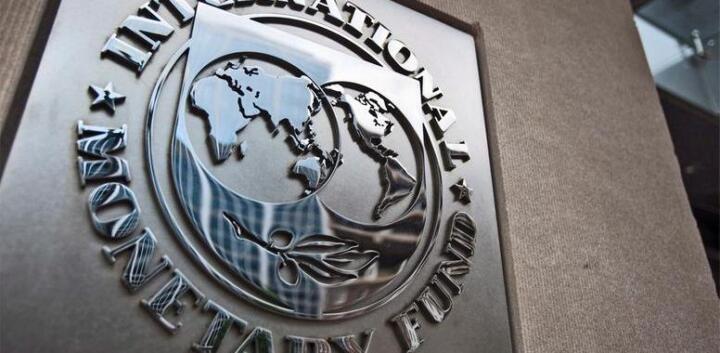Nigerian Breweries Plc, the country’s largest brewer, has reported a significant increase in foreign exchange (FX) losses, reaching an all-time high of N160 billion as of the third quarter of 2024. This stark rise in losses reflects the financial impact of the naira’s devaluation and the ongoing FX crisis, which has added substantial financial pressure on companies reliant on imported raw materials, such as Nigerian Breweries.
Currency Challenges Amplify FX Losses
Nigerian Breweries has been grappling with FX losses over the past few quarters as the naira’s devaluation has increased the cost of its foreign-currency-denominated obligations. The situation is particularly challenging for Nigerian Breweries, which imports a large portion of its raw materials for beer production, such as barley and hops, both primarily sourced internationally. The devaluation has caused the cost of these imports to surge, thereby impacting the company’s bottom line.

The naira’s value against the dollar has dropped significantly, especially since mid-2023 when the Central Bank of Nigeria (CBN) implemented reforms aimed at unifying the multiple exchange rates and moving towards a more market-determined exchange rate regime. While intended to attract foreign investment and stabilize the market, these reforms have led to an abrupt depreciation of the naira, making it harder for businesses like Nigerian Breweries to absorb the cost without affecting their profitability.
### Breakdown of the Financial Impact
Nigerian Breweries’ FX losses are reported as a direct consequence of the fluctuating exchange rate between the naira and foreign currencies, particularly the U.S. dollar. The company holds substantial dollar-denominated loans, which have ballooned in naira terms as the local currency continues to lose value. This financial burden is felt even more acutely as the company faces challenges in accessing foreign exchange at official rates, often resorting to the more expensive parallel market.
Beyond raw materials, other operational costs tied to FX volatility have risen. Packaging, equipment maintenance, and logistics costs are among the line items that have seen an uptick due to the FX challenges, exacerbating the company’s financial strain.
### Strategies for Mitigating Losses
Nigerian Breweries has implemented several measures to mitigate the impact of FX volatility on its finances:
1. **Local Sourcing Initiatives**: To reduce dependency on imported materials, the company has increased efforts to source materials locally. Although local sourcing can provide a long-term buffer against FX volatility, certain ingredients specific to beer production, like malt and hops, have limited local availability.
2. **Hedging Mechanisms**: The company has attempted to hedge against FX risks by locking in favorable exchange rates for certain transactions. However, given the volatility and the lack of liquidity in Nigeria’s FX markets, these measures have not completely shielded Nigerian Breweries from significant losses.
3. **Product Price Adjustments**: Nigerian Breweries has also adjusted the prices of some of its products in response to rising costs. However, these price hikes have been gradual to avoid alienating consumers, as inflation has reduced purchasing power. The company is mindful of balancing revenue generation with maintaining market share in a highly competitive environment.
4. **Operational Efficiency**: Nigerian Breweries has also streamlined its operations to cut costs where possible. This includes optimizing production processes and distribution channels to reduce overhead and improve efficiency.
### Broader Implications for the Beverage Industry
The FX crisis is impacting not only Nigerian Breweries but the entire beverage industry in Nigeria. Many companies in the sector face similar challenges related to import reliance and currency devaluation. As the FX crisis continues, the beverage industry may see a shift toward increased consolidation, as smaller companies unable to absorb the financial shock may struggle to survive. For larger companies, like Nigerian Breweries, profitability is expected to remain under pressure in the near term, with a potential recovery only if there is stabilization in the foreign exchange markets and an increase in the availability of FX at official rates.
Industry experts have suggested that in the face of these challenges, Nigerian Breweries and its peers should accelerate innovation in local ingredient sourcing and alternative production techniques to reduce costs and enhance sustainability. Additionally, long-term solutions may require policy intervention from the government to stabilize the naira and support local industries by creating an enabling environment for local production of essential raw materials.
### Outlook and Future Strategy
Despite the current financial setbacks, Nigerian Breweries remains optimistic about its long-term prospects. The company has emphasized its commitment to the Nigerian market, highlighting continued investment in its local operations, product portfolio expansion, and consumer outreach efforts. Nigerian Breweries’ future strategy will likely prioritize risk mitigation by reducing FX exposure and reinforcing its commitment to sustainability through local sourcing initiatives.
Analysts note that if Nigerian Breweries can successfully navigate this period of FX instability, it could emerge stronger and more resilient, with a more diversified and locally sustainable supply chain. However, the timing of any significant recovery remains uncertain and will likely hinge on broader economic factors, including Nigeria’s ability to attract foreign investment, stabilize the naira, and improve access to FX for businesses.
In the interim, Nigerian Breweries faces a challenging path forward as it balances cost-saving measures with the need to maintain product quality and consumer loyalty. The N160 billion FX loss underscores the urgency of addressing Nigeria’s FX challenges, as continued volatility could further erode the profitability of even the largest and most established businesses in the country.
Support InfoStride News' Credible Journalism: Only credible journalism can guarantee a fair, accountable and transparent society, including democracy and government. It involves a lot of efforts and money. We need your support. Click here to Donate
